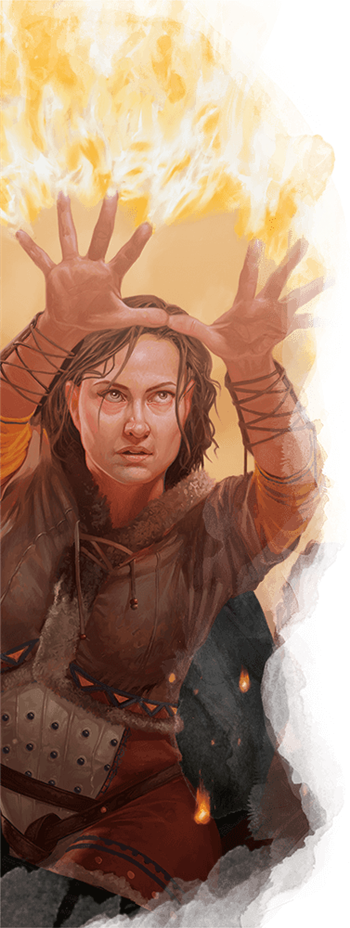 Welcome to New Player’s Guide, the first stop on your journey to playing D&D. This series has advice for players who’ve just joined their first D&D campaign, as well as Dungeon Masters who want help taking their new campaign to the next level. To see the other articles in this series, check out the New Player’s Guide tag—and for the brass-tacks information on how to start playing D&D, click on the New Player Guide link at the top of this page!
Welcome to New Player’s Guide, the first stop on your journey to playing D&D. This series has advice for players who’ve just joined their first D&D campaign, as well as Dungeon Masters who want help taking their new campaign to the next level. To see the other articles in this series, check out the New Player’s Guide tag—and for the brass-tacks information on how to start playing D&D, click on the New Player Guide link at the top of this page!
This installment of the New Player’s Guide series is for players who have just created a character that can cast spells. If your campaign starts at 1st level, you’re a spellcaster if you’re playing a bard, a cleric, a druid, a sorcerer, or a wizard. Warlocks are special, so we’ll talk about them separately. There are a number of other classes that can become spellcasters too, through special subclass features, but we won’t worry about them for now. We’re focusing on characters that can cast spells right out of the gate.
While reading this article, it’ll help to have a copy of the free D&D Basic Rules on hand. All of the classes in their basic form are free on D&D Beyond too, so you can also use the character creator for free, too.
Creating a Spellcaster
The process of creating a spellcasting character is exactly the same as creating any other character up until the point where you need to choose your spells. If you’ve never played a D&D character of any kind before, start by reading Everything You Need to Use D&D Beyond—it will show you exactly how to make a character—and then come back once you’re ready to pick your spells at the end of the character creation process. Go to the main window of your digital character sheet and click on the Spells tab. From there, click on the Manage Spells button. Then click on the Known Spells drop-down to open up a list of all the spells you can learn. This is your starting point.
By the way, if you’re playing a spellcaster for your first-ever D&D character, you’re a brave soul. Spellcasters are complicated—but hey, just about every D&D party needs a cleric and a wizard, right? You’re doing your party a great service by taking on this challenging role, and this guide will help you play that role with style and ease.
Cantrips
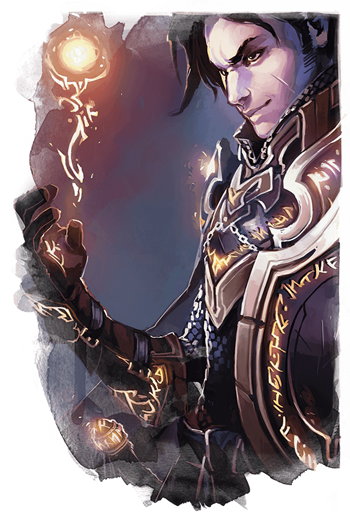 Cantrips are basic spells that have been drilled into every spellcaster’s mind through constant repetition, and require no magical energy to cast; you can cast your cantrips all day long and never get tired. As a 1st-level spellcaster, you know several cantrips from your class’s spell list. To see the cantrips available to you, click on the “-0-“ in the Filter By Spell Level section of your Manage Spells tab. This will show you all of the cantrips, sometimes known as “0-level spells,” that are available to your class. You can click on the name of each spell to see a description of the spell.
Cantrips are basic spells that have been drilled into every spellcaster’s mind through constant repetition, and require no magical energy to cast; you can cast your cantrips all day long and never get tired. As a 1st-level spellcaster, you know several cantrips from your class’s spell list. To see the cantrips available to you, click on the “-0-“ in the Filter By Spell Level section of your Manage Spells tab. This will show you all of the cantrips, sometimes known as “0-level spells,” that are available to your class. You can click on the name of each spell to see a description of the spell.
Depending on your class, you can choose anywhere from 2 to 4 cantrips at 1st level. You won’t be able to change your cantrips once you’ve chosen them, but you will gain more as you level up, so don’t stress out about this choice too much. The best Dungeon Masters allow new players to change their cantrips if they’re not having fun with your choices, so don’t be afraid to ask.
Do You Learn Spells, or Prepare Them?
You’re a 1st-level spellcaster, faced with the decision of what spells to learn at the start of your adventure. The spellcasters in D&D can be broken down into two broad categories, based on what class they chose: those who know their spells and those who prepare their spells. Whether you have Spells Known or Spells Prepared has a big impact on the way you choose spells, so let’s break that difference down.
Bard and Sorcerer: Spells Known
If you’re a bard or a sorcerer, you know your spells by heart. For bards, this is like memorizing all the songs on your set list. For sorcerers, this is like intuitively knowing the feel of the power that flows from your innate connection to the Weave of Magic. Just like choosing cantrips, once you’ve chosen a spell from your spell list, you’ve committed to it. That spell is always ready to be cast, as long as you have a spell slot to spend in order to cast it.
Once you’ve learned a spell, it’s in your memory permanently. A bard starts knowing four spells at 1st level. A sorcerer starts knowing two. This number of spells known climbs as you gain levels, and you can also swap out any one spell that you know for a different one on your spell list when you gain a level—in addition to the new spells that you learn.
The spells you know can be of any spell level you can cast. Right now, you can only cast 1st-level spells, so that doesn’t matter. As you gain the ability to cast spells of higher level, you can make strategic choices about what level of spells you know. Is it better to know a lot of high-level spells so you have a huge selection of powerhouse spells? Or to know a lot of low-level spells because you have more low-level spell slots? This decision is unique to everyone’s personal playstyle, so don’t stress out about making the wrong decision. You can always change your mind later.
Cleric, Druid, and Wizard: Spells Prepared
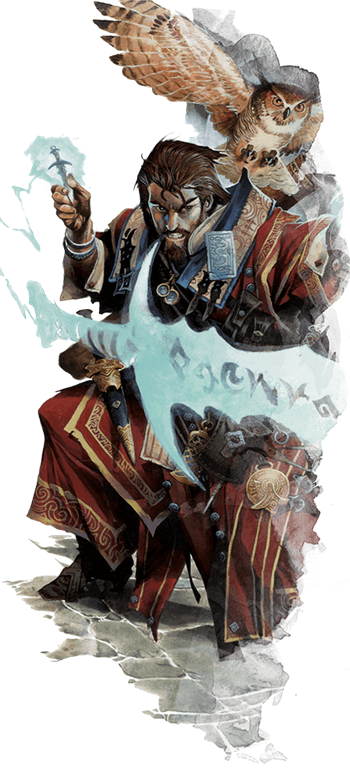 If you’re a cleric or a druid, you have access to your class’s entire spell list at once—sort of. Every day when you wake up and complete a long rest, you can choose to completely change your list of prepared spells. The entire cleric or druid spell list is available to you, but you can only prepare a specific number of spells. Your digital character sheet calculates this number automatically, but that number is equal to your character’s level plus your spellcasting ability modifier. For clerics and druids, their spellcasting ability is Wisdom, so a 1st-level cleric or druid with a Wisdom of 15 (+2) can prepare three 1st-level spells every day.
If you’re a cleric or a druid, you have access to your class’s entire spell list at once—sort of. Every day when you wake up and complete a long rest, you can choose to completely change your list of prepared spells. The entire cleric or druid spell list is available to you, but you can only prepare a specific number of spells. Your digital character sheet calculates this number automatically, but that number is equal to your character’s level plus your spellcasting ability modifier. For clerics and druids, their spellcasting ability is Wisdom, so a 1st-level cleric or druid with a Wisdom of 15 (+2) can prepare three 1st-level spells every day.
Wizards are similar, but there’s a big difference. You don’t have access to the entire wizard spell list to prepare from, just the spells that are inscribed in your spellbook. Every wizard has a spellbook that they use to write down the spells they’ve studied over the course of their lives. You start the game with six wizard spells of your choice in your spellbook, and gain two new spells of your choice every time you level up. You can also copy spells into your spellbook from scrolls you find as treasure or even from the spellbooks of other wizards you study with or defeat in combat!
Copying spells into your spellbook costs money and time; look at the “Your Spellbook” sidebar in the Wizard class description in the Basic Rules for more information about this.
For wizards, preparing spells from your spellbook is otherwise exactly the same as how clerics and druids prepare spells from their spell lists. The digital character sheet automatically calculates the number of spells you can prepare each day—that number is equal to your character’s level plus your spellcasting ability modifier. For wizards, your spellcasting ability is Intelligence, so a 1st-level wizard with an Intelligence of 16 (+3) can prepare four 1st-level spells every day.
What Kind of Spellcaster Are You?
Now that you’ve determined if you know your spells or prepare them, the time has come to actually CHOOSE which spells you want to cast! If you know your spells, you need to choose a well-balanced selection of spells that will help you out in any sort of situation from social interaction to exploration to combat. If you prepare your spells, you get to make this decision at the start of every day, so you can always adjust your loadout of spells to suit the day’s challenges. It helps for prepared spellcasters to have an “everyday” loadout of prepared spells, so that you can prepare a generic list of useful spells on days where you don’t want to customize your selection.
With this in mind, it’s important to think about what kind of spellcaster you want to be. Do you want to focus on offensive spells that deal damage and kill monsters? Or would you prefer to cast support spells that buff and heal your allies? There are more options, too—some spells are defensive, allowing you to protect yourself and your allies from harm, while others are social, giving you a benefit in noncombat social interactions. Many other spells serve a utility role, and are useful in exploration and a wide variety of other miscellaneous situations.
What kind of role do you want to play? The best way to find out is to read the Class 101 guide for your class, which gives a breakdown of how each class can play a certain role in the party. These guides give specific suggestions of spells you can pick. Of course, you could also just pick the spells that sound coolest to you, if you don’t want to think too hard about it!
- Bard 101: A Beginner’s Guide to Style and Panache
- Cleric 101: A Beginner’s Guide to Playing the Divine
- Druid 101: A Beginner’s Guide to Channeling Nature’s Might
- Sorcerer 101: A Beginner’s Guide to Innate Magic
- Wizard 101: A Beginner’s Guide to the Arcane Arts
Spell Slots
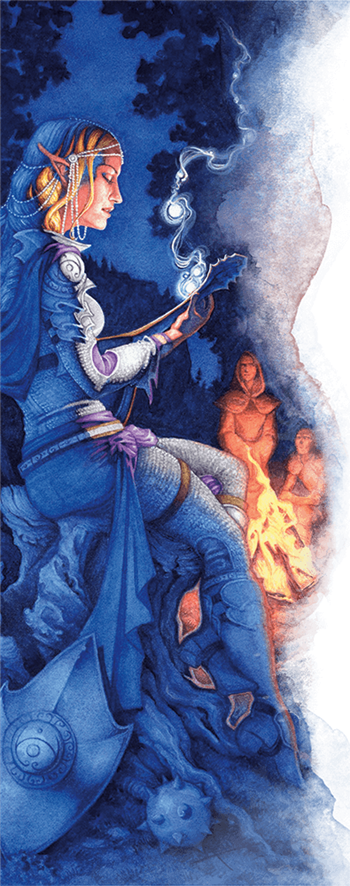 One last note on spellcasting before you are free to adventure. All spells of 1st level or higher require you to draw upon stores of magical energy within your own spirit. In game terms, we call this magical source spell slots. In short, a spell slot allows you to cast a spell of its slot level or lower. So, as a 1st-level character, you have two 1st-level spell slots. You can use these 1st-level spell slots to cast any 1st-level spell that you know (or that you have prepared).
One last note on spellcasting before you are free to adventure. All spells of 1st level or higher require you to draw upon stores of magical energy within your own spirit. In game terms, we call this magical source spell slots. In short, a spell slot allows you to cast a spell of its slot level or lower. So, as a 1st-level character, you have two 1st-level spell slots. You can use these 1st-level spell slots to cast any 1st-level spell that you know (or that you have prepared).
Once you’re out of spell slots, you need to complete a long rest to restore them. Once you wake up, all of your spell slots are restored and you can cast your spells again. Until then, you have to rely on your cantrips and equipment to survive.
As you level up, you’ll not only gain more 1st-level spell slots, but also spell slots of higher levels that you can use to cast stronger spells! For example, a 3rd-level wizard has access to four 1st-level spell slots and two 2nd-level spell slots.
Warlocks
I promised you we’d get to warlocks. If you’re playing a non-warlock class, congratulations! You have an excellent list of useful spells that will serve you throughout your low-level adventuring career. You are free to go exploring ancient tombs and untamed wildernesses!
Now, if you’re a warlock, we get to talk about this unusual and eldritch class. Warlocks know their spells, much like bards and sorcerers, but their way of casting spells deserves a special mention.
You may be surprised to notice that 1st-level warlocks only have one 1st-level spell slot. You can only cast one spell before you have to rely on your cantrips! This is balanced by the fact that warlocks can regain all of their spell slots by completing a short rest, not a long rest like other casting classes. Not only that, but all of your warlock spells are cast using the same spell slots. Rather than having to use spell slots of different levels to cast spells of different levels, all of your warlock spells automatically scale to be cast at their highest possible level.
For example, a 5th-level warlock has two spell slots that recover when the warlock completes a short rest. Both of those spell slots are 3rd-level spell slots, the maximum level of spell the warlock has access to. Those two spell slots can be used to cast a 1st-level spell, or a 2nd-level spell, or a 3rd-level spell. And if any of those spells have an “At Higher Level” tag that gives them extra power when cast with a higher-level spell slot, they activate, since the spell is being cast with a 3rd-level spell slot.
If you’re playing a warlock and you’re feeling a bit confused, take a look at Warlock 101: A Beginner’s Guide to Eldritch Might. This class guide goes into detail to explain the complicated details of the mysterious warlock class.
Do you have any other questions about spell selection? Let us know in the comments!
Create A Brand-New Adventurer Acquire New Powers and Adventures Browse All Your D&D Content
 James Haeck is the lead writer for D&D Beyond, the co-author of Waterdeep: Dragon Heist, Baldur's Gate: Descent into Avernus, and the Critical Role Explorer's Guide to Wildemount, a member of the Guild Adepts, and a freelance writer for Wizards of the Coast, the D&D Adventurers League, and other RPG companies. He lives in Seattle, Washington with his fiancée Hannah and their animal companions Mei and Marzipan. You can find him wasting time on Twitter at @jamesjhaeck.
James Haeck is the lead writer for D&D Beyond, the co-author of Waterdeep: Dragon Heist, Baldur's Gate: Descent into Avernus, and the Critical Role Explorer's Guide to Wildemount, a member of the Guild Adepts, and a freelance writer for Wizards of the Coast, the D&D Adventurers League, and other RPG companies. He lives in Seattle, Washington with his fiancée Hannah and their animal companions Mei and Marzipan. You can find him wasting time on Twitter at @jamesjhaeck.








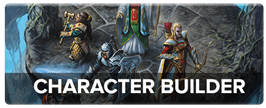
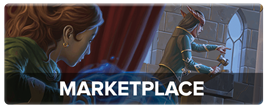
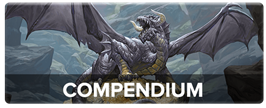
-
View User Profile
-
Send Message
Posted Apr 10, 2020This has always been something I wasn't sure about. My son is playing a sorcerer and I have only allowed him to switch spells out when he gained a level. Sounds like I was mostly right... just have to remember to limit him to a single spell to swap.
-
View User Profile
-
Send Message
Posted Apr 10, 2020Thanks for the post. I'm brand new to the game and started playing remotely with friends due to the corona virus. It's great to have a reference guide as a new player. I don't have any of the books, dice, or anything.
D&D Beyond has been a great help.
-
View User Profile
-
Send Message
Posted Apr 10, 2020This is helpful. Maybe a bit more on the actual roles for tank, support, offense and defense. Like examples of spells and what you should be looking for.
-
View User Profile
-
Send Message
Posted Apr 10, 2020This has really helped me. I'm playing a 9th level druid, and even though this is for beginners, I understand a lot more now.
-
View User Profile
-
Send Message
Posted Apr 10, 2020Very clear and concise. Superb info :-)
-
View User Profile
-
Send Message
Posted Apr 10, 2020Nice, solid guide!
-
View User Profile
-
Send Message
Posted Apr 11, 2020Ranger advice would be great
-
View User Profile
-
Send Message
Posted Apr 11, 2020So, I remember that Eldritch Knights, Arcane Tricksters, and Monks of the Way of the Four Elements are called 1/3 Casters. Would paladins and rangers be considered half casters?
-
View User Profile
-
Send Message
Posted Apr 11, 2020Also, in terms of Warlocks, warlocks are cantrip-focused casters. They hold some elements of other classes (I.e. pact of the blade), so they aren’t entirely spell-heavy. When you do Cast a spell of 1st level or higher, you have a bunch to choose from, but not a ton of opportunities to use them. So the point of it is, strike hard with high power levels and let your cantrips support you if you need to use them. If you need to use your spell slots, I’m not sure waiting is the best tactic. Use them and allow your other abilities help you out in the future. A quick offense makes a good defense. I don’t know a ton about how this all works, and my ideas may not be right, but I’m just jotting down some ideas. Hope this helps in any strategy-planning!
-
View User Profile
-
Send Message
Posted Apr 11, 2020Hey James, the link to the Bard 101 beginner's guide isn't working, any chance you could update your post with it or comment it here?
-
View User Profile
-
Send Message
Posted Apr 11, 2020I didn't know anything about that warlock part thanks!
-
View User Profile
-
Send Message
Posted Apr 11, 2020It should be working now. Thanks for letting me know.
-
View User Profile
-
Send Message
Posted Apr 11, 2020I want to see some Magic Items articles.
-
View User Profile
-
Send Message
Posted Apr 11, 2020Warlocks are what I call the Utility Infielder (baseball reference, if you're not familiar) or Jack of All Trades caster. They can be faces, scouts, primary casters in a melee-heavy party, or they can be supplemental melee. They may only get so many spells slots, but they do get Invocations and the single most powerful cantrip in the game, when played correctly: Eldritch Blast.
From my perspective, Warlocks may have to figure their role in the party based on the others on the table. Their utility, like a rogue or a bard, may mean more flexibility in demand over time than other more traditionally defined roles: fighter, cleric, etc. Because of this, unlike pure casters such as sorcerors and wizards, the party can ask the warlock to change roles as other characters drop out or change. Spells are just *one* feature - albeit a pretty darn good one- of Warlocks. It's their versatility that make them valuable.
-
View User Profile
-
Send Message
Posted Apr 12, 2020Isn’t a bard kind of the same thing? Bards are versatile as well.
-
View User Profile
-
Send Message
Posted Apr 12, 2020I want some useless magic item articles to give characters in my campaigns humor.
-
View User Profile
-
Send Message
Posted Apr 12, 2020Check out our comedy articles by Dan Telfer! You'll find plenty of humorous spells, items, monsters, and more in there.
-
View User Profile
-
Send Message
Posted Apr 12, 2020Yes, that's why I included the bard and rogue in my comment.
-
View User Profile
-
Send Message
Posted Apr 14, 2020hi
-
View User Profile
-
Send Message
Posted Apr 14, 2020Thanks for this guide.
For future editions can you consider getting rid of the character level / spell level confusion.
It is an uneccesary hold over from older verisons of the game. I see so many people get confused by the "I am second level, why can't I cast level 2 spells"?